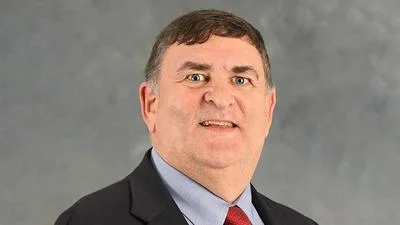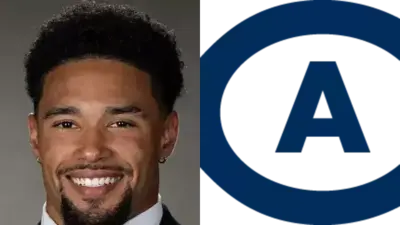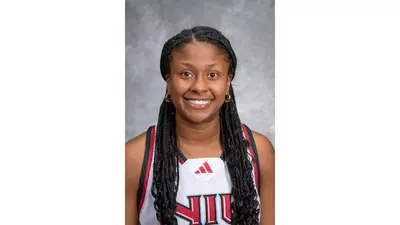Southern Illinois University Board of Trustees met Thursday, Sept. 8.
The Board of Trustee governs, manages, and maintains Southern Illinois University, including all its branches; employs educational and administrative personnel; prescribes courses of study; sets fees; administers plan for billing and collection of charges made by faculty members at the School of Medicine for professional services performed in support of academic duties.
Here are the minutes as provided by Southern Illinois University:
BOARD OF TRUSTEES
SOUTHERN ILLINOIS UNIVERSITY
Minutes of the Academic Matters Committee Meeting
September 8, 2016
The Academic Matters Committee met at 9:04 a.m. on Thursday, September 8, 2016, in the Conference Center, second floor, of the Delyte Morris University Center at Southern Illinois University Edwardsville. Present were: Shirley Portwood, J. Phil Gilbert, Donna Manering, and Naomi Tolbert. Other Board members present were: Roger Herrin, Ryan Johnson, Joel Sambursky, and Amy Sholar. Board Chair, Randal Thomas, was absent. Executive Officers present were: President Randy J. Dunn; Acting Vice President for Academic Affairs James Allen; Senior Vice President Duane Stucky; Interim Chancellor Bradley Colwell, SIUC; Chancellor Randall Pembrook, SIUE.
Announcements
Acting Vice President James Allen shared a PowerPoint on the Illinois Board of Higher Education’s (IBHE) low-performing academic degree program metrics. He provided background information on Public Act 97-610 that then-Governor Pat Quinn signed into law in 2011. The Act requires the IBHE to report to the General Assembly trends on academic degree programs from public universities that exhibit low performance in enrollments, degree completions, and expense per degree. IBHE prepared a set of metrics for the associate, baccalaureate, master, and doctoral degrees that public universities are to reference. The metrics are for enrollment and degree completion. IBHE has asked public universities to define their own metrics for instructional costs.
IBHE will provide the public universities with a listing of their respective low-producing programs, and the universities will be expected to report back to them by November.
President Randy J. Dunn added to the announcement by identifying IBHE as a coordinating body. Their role is to draw attention to low-performing degree programs, pursuant to the statute, and to assist universities with data for identifying a plan moving forward.
He indicated that legislature has recently keyed on these numbers and are becoming more engaged with what the campuses do when low-performing degree programs are identified. He believes the General Assembly will become more aggressive in their stance and will look for action from IBHE on the programs identified.
President Dunn stated that each of the campuses will be evaluating the list of low- performing programs that IBHE identifies, and work with constituency bodies to review these programs. They will look at the centrality of the program and the importance to the campus, etc.
Approval of the Minutes of the July 14, 2016, Meeting
Motion was made by Trustee Gilbert to approve the minutes of the July 14, 2016, meeting. The motion was duly seconded by Trustee Mannering and passed by the Committee.
Information Report: Program Quality Assurance
Acting Vice President Dr. Allen provided a brief overview of the Program Quality Assurance Report. There were no questions from the Committee.
Operating and Capital RAMP Guidelines and Executive Summary: Resource Allocation and Management Program (RAMP) Planning, Operations, and Capital Budget Requests, Fiscal Year 2018 (Joint Discussion with Finance Committee and Architecture and Design Committee) (Board Agenda Item K)
President Randy Dunn presented the Operating and Capital RAMP Guidelines and Executive Summary. He indicated that the RAMP process is used early in the budget process to layout the program plans or initiative areas that the universities intend to go forward with in the next fiscal year. Due to the state budget issues in the past few years, this has become more of a pro-forma exercise. President Dunn is not anticipating any type of budget process where there will be new money available to fund new programs or initiatives. However, state-funded universities are still obligated to provide this report for Board action to fulfill their statutory duty.
A Board member asked if the list has changed much over the years. President Dunn replied that it has not changed much in the past few years. He added that 20-25 years ago RAMP would have been a more robust document where new centers or programs were being developed because new monies would have been available.
Motion was made by Trustee Gilbert to approve Item K. The motion was duly seconded by Trustee Manering and passed by the Committee.
Presentation: Teaching Compassion Meditation to Detained Youth: The Intersection of Teaching, Research and Community Service
Acting Vice President James Allen introduced Dr. Jeremy Jewell, Professor; Licensed Clinical Psychologist; and Certified School Psychologist from Southern Illinois University Edwardsville. He also recognized two students accompanying Dr. Jewell—Hannah Dahms a junior and Psychology Major with a minor in Criminal Justice and Marjorie Wilson a senior and Psychology Major with a minor in Sociology.
Dr. Jewell began by thanking the Board for inviting him. He shared with the Board that he teaches Counseling with Children and Adolescents, and Crisis Intervention graduate courses. He also researches topics in mental health and mental illness and how to increase the mental health of children in foster care and court-involved youth. His presentation focused on how teaching, research and community service components come together in his CALM program for delivering compassion meditation to kids in detention.
He works with many health agencies, courts, and probation departments in southern Illinois, but his presentation focused on his works with detained youth at the Madison County Juvenile Detention Center.
Dr. Jewell gave a brief overview of his unique program, what it is, who delivers it, how it works, and how the kids use the meditation to deal with their anger, stress and anxiety while in detention, how the kids are evaluated, and results from their use of CALM program.
In addition to offering his program at Madison County Juvenile Detention Center, Dr. Jewell has implemented his CALM program in three Belleville elementary schools for “at-risk” children and is expanding into the East Saint Louis Center for foster children in the after-school program. He hopes to expand his elementary school program to include all children and eventually have enough SIUE undergraduate students to offer the program to junior high schools.
Hannah and Marjorie discussed how the CALM program and Dr. Jewell’s research lab has impacted their learning and lives.
Dr. Jewell closed the presentation by giving an account of a 17-year-old youth in the detention center whose mother was a meth addict who would leave him and his siblings for one or two weeks at a time. The youth began stealing change from cars at the age of ten for the purpose of buying food for him and his siblings. Later he stole money and shop-lifted to support his meth addiction—his upbringing influencing his criminal behavior. Dr. Jewell ended by sharing a quote from Father Flanagan, “There is no such thing as a bad boy. There is only bad learning, bad behavior, bad environment, and bad parenting.”
Dr. Jewell received questions from the Board regarding the youngest age of kids in the detention center, the different impact on different age groups or the crimes they have been charged with, preventative initiatives, and what follow-up is done with the kids.
There was a comment applauding Dr. Jewell for what he is doing to save kids at the detention center and the “at-risk” kids, for which Dr. Jewell gave all credit to his undergraduate and graduate students.
From comments made regarding collection of data, Dr. Jewell was very open to looking into options. He informed the Board that he has applied for a $5,000,000 four-year grant from the National Institute of Justice to implement the CALM program in thirteen schools in Belleville to administer to all students not just “at-risk” students.
A final comment from a Board member was about his first-hand experience with Dr. Dean Ornish’s deep meditation as it relates to coronary artery disease and the health benefit it has in the reversing of heart disease.
Other Business
Having no further business before it, the Academic Matters Committee adjourned at 9:50 a.m.




 Alerts Sign-up
Alerts Sign-up